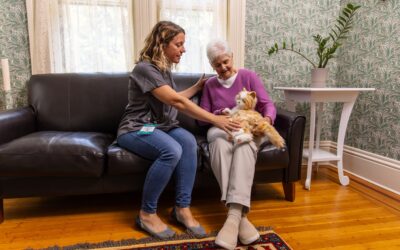Reducing loneliness and improving well-being among older adults with animatronic pets
Abstract Background Studies consistently demonstrate that older adults who are lonely have higher rates of depression and increased mortality risk. Pet ownership may be a solution for loneliness; however, challenges related to pet ownership exist for older adults....
New Approaches for the Treatment of Delirium: A Case for Robotic Pets
Delirium is highly prevalent in hospitalized patients and is a strong and consistent negative predictor of length of stay, mortality, and long-term cognitive outcomes. Symptoms commonly associated with delirium include reduced ability to focus, sleep disturbances,...
Robotic Pet Therapy Improves Outcomes for Hospitalized Older Adults
This randomized controlled trial at an inner city community hospital examined the effect of a robotic pet (cat or dog) on cognition, loneliness, depression, delirium, falls, restraint use, and 1:1 companion use in 160 adults over age 65. The study utilized robotic...
Exploring the Effects of Interaction with a Robot Cat for Dementia Sufferers and their Carers
Abstract Research has previously demonstrated the positive effects of robotic companion pets, but while this is important from a research perspective, their cost renders their widespread use currently unfeasible. This research seeks to explore the potential of an...
LEARN MORE





